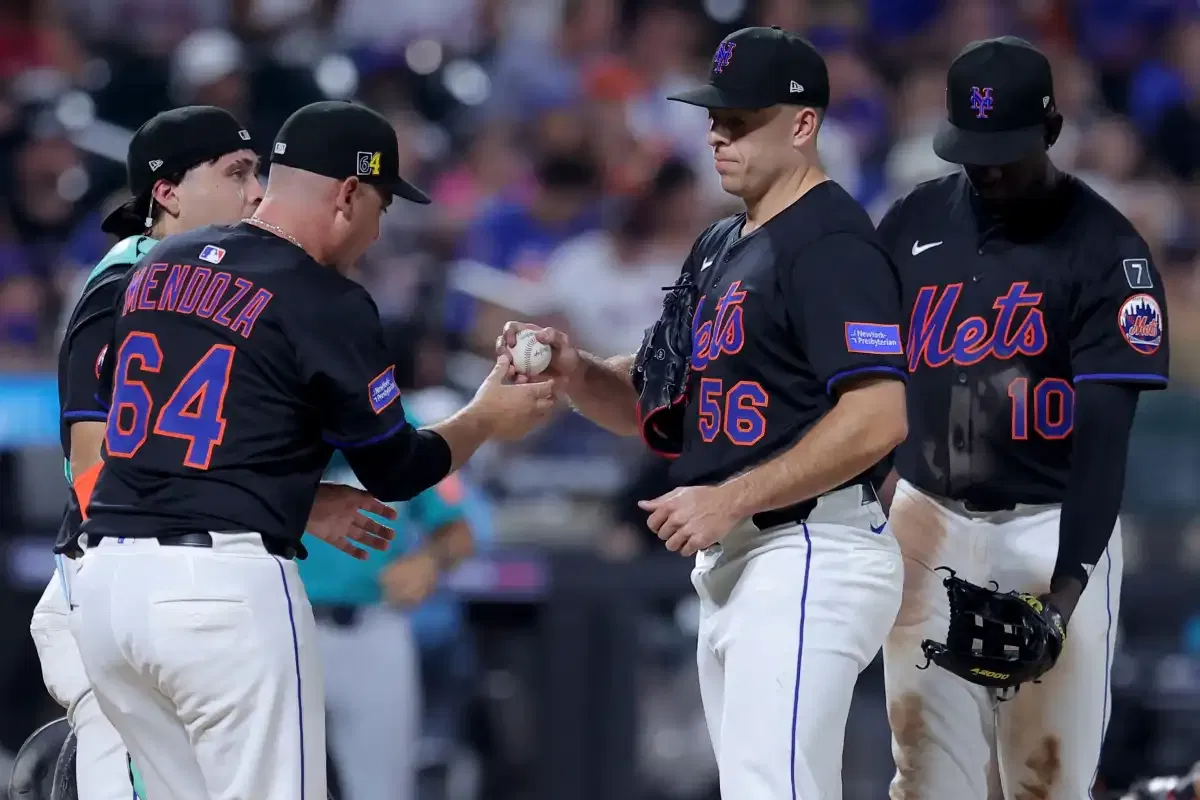
Imago
Image: MLB.com

Imago
Image: MLB.com
“It was a seed that started over a decade ago after my playing days…” About 3 weeks ago, D.J. Carrasco appeared on Coach Beede’s podcast and talked about his baseball brain child (his hat said it all). The ex-Mets pitcher shared losing his mother in New Zealand, and visiting the country only after his retirement with his wife. “Just taking in all the culture, all the people, we wanted to go back after we got home, and we said, ‘How can we go back?’… I went ahead and helped out for the next 10 years, from grassroots, from little league to Kiwi ball, which is taught in schools, all the way to a WBC competition, helping the Māoris and the Kiwis alike there. And that turned into the seed when I got back home.” And that was the beginning of a movement that could reshape America’s favorite pastime forever.
Watch What’s Trending Now!
Carrasco has launched an ambitious initiative called Native Nations, aiming to create the first all-Native American team to compete in international baseball tournaments, including potentially the World Baseball Classic. His vision extends beyond competition—establishing training hubs on tribal land across eight or nine locations, equipped with cutting-edge technology to develop young Native American talent from the ground up. Now, when Mets pitcher Ryan Helsley, a Cherokee Nation citizen, learned about the possibility of Native Nations competing in the World Baseball Classic, his reaction was immediate and unfiltered.
“Crazy.” Tampa Bay’s Adrian Houser, also a Cherokee Nation member, echoed the exact sentiment with the same single word. Yet their skepticism doesn’t diminish the program’s growing momentum—the World Baseball Softball Confederation officially recognized Native Nations as an associated member in July. Helsley’s reaction reflects the magnitude of Carrasco’s vision.
ADVERTISEMENT
The former pitcher, who spent eight years in the majors, founded Native Nations in October 2022 after recognizing that indigenous players in America lacked the representation opportunities available to their counterparts in other countries. The program emerged from Carrasco’s work with New Zealand’s indigenous baseball programs, where he witnessed Māori players representing their heritage on the international stage. Native Nations have recently seen their first cohort compete in the Babe Ruth World Series, marking a significant milestone. While funding remains a challenge, with corporate sponsors and potentially Native American-owned casinos providing future support, Carrasco’s initiative represents more than baseball.
It’s about sovereignty, representation, and giving tribal communities the recognition they deserve on sports’ biggest stages. But Helsley’s reaction takes us back to the struggling season he has been experiencing. Remember his game against the Detroit Tigers? Helsley gave up a three-run homer off the bat of Kerry Carpenter, leading to the Mets’ loss. Yet, Monday night was a bit different for him as he struck out 2 out of 3 Philly batters that he faced in the bottom of the eighth inning to keep the scoreboard at 1-0 (Phillies-Mets).
The New York Mets sit precariously in second place in the NL East, fighting for their playoff lives with just 18 games remaining. While the team battles for a Wild Card spot, Helsley’s inclusion in a conversation about something much bigger than wins and losses has the town talking.
ADVERTISEMENT
Meanwhile, the Cherokee pitcher faces his own uphill battle as his team fights for playoff survival in what has become a season defined by inconsistency.
ADVERTISEMENT
Mets struggle to find consistency
While Helsley contemplates groundbreaking changes to baseball’s future, his present reality with the New York Mets tells a different story—one of frustration and missed chances. The team finds itself trapped in a maddening cycle where nothing clicks simultaneously.
Monday’s 1-0 loss to Philadelphia exposed this cruel pattern once again. Nolan McLean stepped up with a solid 5.1-inning performance, surrendering just one run, but the Mets’ bats vanished when it mattered most.
Top Stories
Kyle Tucker Handed Blunt Reality Check as Blue Jays Shift Focus to Bolster Vladimir Guerrero Jr.
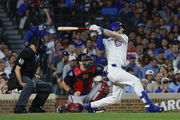
3 Reasons Bo Bichette’s Offseason Market Seemingly Collapses After Blue Jays’ Sudden Shift
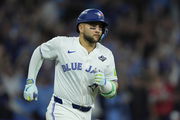
Blue Jays To Ditch Kyle Tucker For Beloved Toronto Star As Toronto Bids To Bolster Vladimir Guerrero Jr., Per Insider

Venezuelan MLB Prosect Sends Desperate Plea As US Military Action Puts WBC Dreams In Jeopardy
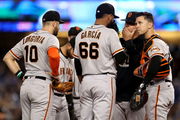
Who Are Kyle Tucker’s Parents? All about Mike Tucker and Lisa Fernandez
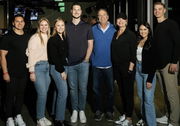
Aaron Nola, despite his recent struggles, looked untouchable against New York’s lifeless lineup, which managed only five hits and extended their losing streak to three games.
ADVERTISEMENT
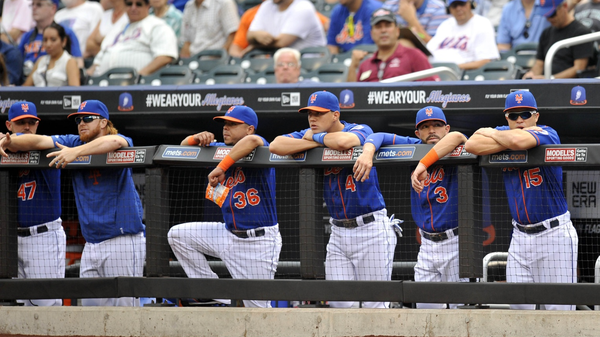
Imago
Image: MLB.com
Manager Carlos Mendoza captured the team’s predicament perfectly when addressing reporters about their inconsistency.
“I think it’s just having a hard time putting everything together for quite a bit,” Mendoza explained. “We got out of the gate and everything was working. And then, at times, whether it was the starting pitching or runners in scoring position offensively, we haven’t been able to play good defense at times.”
ADVERTISEMENT
The numbers paint a grim picture. Eight games behind Philadelphia with 18 remaining essentially kills division hopes, while San Francisco’s 12-4 surge over their last 15 games threatens New York’s wild card dreams. Upcoming matchups against Texas and San Diego offer little comfort for a team desperately seeking offensive rhythm.
ADVERTISEMENT
ADVERTISEMENT
ADVERTISEMENT

